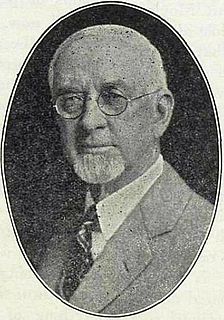A Quote by Alfred Lord Tennyson
Do we indeed desire the dead Should still be near us at our side ? Is there no baseness we would hide ? No inner vileness that we dread ? How many a father have I seen A sober man, among his boys Whose youth was full of foolish noise.
Related Quotes
How many of us would be able to overcome our desires and resist the temptation of sin? How many of us even lower our gaze when we look upon something that we are not supposed to? The real prisoner is the one whose heart has been kept away from remembering his Lord, and the real captive is the one who has been captivated by his whims and desires.
You can lose your way groping among the shadows of the past. It's frightening how many people and things there are in a man's past that have stopped moving. The living people we've lost in the crypts of time sleep so soundly side by side with the dead that the same darkness envelops them all. As we grow older, we no longer know whom to awaken, the living or the dead.
In the matter of fellowship God looks not at how much we apprehend of His will but rather at what our attitude towards His will is. If we honestly seek and wholeheartedly obey His desires, our fellowship remains unbroken, even though there should be many unknown sins in us. Should fellowship be determined by the holiness of God, who among all the most holy saints in the past and the present would be qualified to hold a moment's perfect communion with Him?
How many mysteries have you seen in your lifetime? How many nets pulled full over the boat's side, each silver body ready or not falling into submission? How many roses in early summer uncurling above the pale sands then falling back in unfathomable willingness? And what can you say? Glory to the rose and the leaf, to the seed, to the silver fish. Glory to time and the wild fields, and to joy. And to grief's shock and torpor, its near swoon.
There is no excellence anywhere without labor. We would think a man foolish indeed who would say, "I am willing that my business should prosper, or that my farm should yield plentifully, but I'll not stir a peg." But he is no more foolish than the man who says, "I am willing that God should bless me abundantly, but I shall not do anything toward that end myself." We must consistently rely upon the help of the Lord, but we will not make any progress or meet with any success unless we put forth an earnest effort.
It's still a load. If there was balance, the soldier boys would all be dead, and we'd be sitting pretty in the middle of the Drowned Cities, shipping marble and steel and copper and getting paid Red Chinese for every kilo. We'd be rich and they'd be dead, if there was such a thing as the Scavenge God, or his scales. And that goes double for the Deepwater priests. They're all full of it. Nothing balances out.
The realization of our soul has its moral and its spiritual side. The moral side represents training of unselfishness, control of desire; the spiritual side represents sympathy and love. They should be taken together and never separated. The cultivation of the merely moral side of our nature leads us to the dark region of narrowness and hardness of heart, to the intolerant arrogance of goodness; and the cultivation of the merely spiritual side of our nature leads us to a still darker region of revelry in intemperance of imagination.
... so our customary practice of prayer was brought to mind: how through our ignorance and inexperience in the ways of love we spend so much time on petition. I saw that it is indeed more worthy of God and more truly pleasing to him that through his goodness we should pray with full confidence, and by his grace cling to him with real understanding and unshakeable love, than that we should go on making as many petitions as our souls are capable of.
Besides loving each other, we must bear with each other and pardon ? 'forgive them that trespass against us' ? in order that our heavenly Father may 'forgive us our trespasses' (Mt. 6:14). Thus, with all your soul honor and love in every man the image of God, not regarding his sins, for God alone is Holy and without sin; and see how He loves us, how much He has created and still creates for us, punishing us mercifully and forgiving us bounteously and graciously. Honor the man also, in spite of his sins, for he can always amend.
To Whom does our God say, 'in our image' (Gen. 1:26), to whom if it is not to Him who is 'the brightness of His glory and the express image of His Person' (Heb. 1:3), 'the image of the invisible God' (Col. 1:15)? It is then to His living image, to Him Who has said 'I and My Father are one' (Jn. 10:30), 'He who has seen Me has seen the Father' (Jn. 14:9), that God says, 'Let us make man in our image'.






































